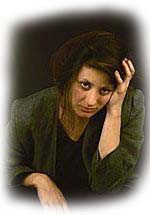 It might be an option for people with major depression who have not responded to conventional antidepressant medications.
It might be an option for people with major depression who have not responded to conventional antidepressant medications.
First, the details.
- 301 people with major depression who had not benefited from prior treatment were randomly assigned to active or sham transcranial magnetic stimulation (TMS).
- They took no medicine.
- Sessions were conducted 5 times per week for 4 to 6 weeks.
And, the results.
- The authors measured lots of stuff, but after 4 to 6 weeks, remission rates with active TMS were approximately twice those of sham.
- 5% of patients dropped out of active TMS early due to side effects.
- Transient scalp discomfort and pain were most commonly reported.
The bottom line?
The authors concluded that TMS was effective treatment and offers an alternative to treat acute depression.
Reported improvement at the 4th week of treatment is interesting, because just a month earlier, there was no difference in response among 127 patients with moderate to severe depressive episodes were randomly assigned to real or sham stimulation for 3 weeks.
A review of this therapy suggests, “When given within recommended guidelines, the overall safety profile of repetitive TMS is good, and supports its further development as a clinical treatment.”
11/23/07 18:55 JR